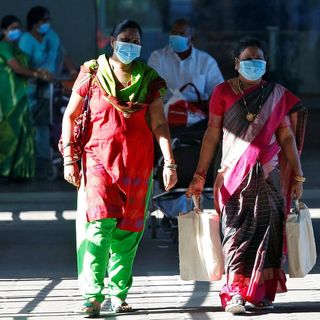It is a truth universally acknowledged, that an urban millennial in possession of a job, must be in want of … sleep.
Indians are the second-most sleep-deprived people on the planet, getting a measly 77 minutes of REM sleep a night on average, according to a Fitbit study. In balancing out hustle and self-care culture, it turns out working professionals are unable to fulfill one of their most important, basic needs. While exactly how much sleep an individual needs differs from person to person, getting less sleep than your body needs (and frankly, deserves) can lead to a host of mental and physical health consequences.
Related on The Swaddle:
Genes, Not Grit, Determine a Person’s Ability to Function Normally on Less Sleep
Effects of sleep deprivation on mental health
Lack of sleep can lead to obvious consequences — fatigue, a lack of focus, and irritability, according to the U.K.’s National Health Service. Long term, however, the mental health effects translate to a perpetual fogginess in the brain that hampers concentration and decision-making skills, according to the NHS. A lack of sleep can also cause chronic conditions of depression and anxiety, according to Harvard Health. Disruptions in sleep, especially frequent, periodic ones, affect levels of neurotransmitters and stress hormones that can permanently impact thinking and emotional regulation, Harvard Health states.
Effects of sleep deprivation on physical health
Physically, sleep deprivation has been known to reduce immunity, making a sleep-deprived individual more prone to catching colds, according to the NHS. A lack of sleep is also linked to obesity, according to a paper published in the American Journal of Human Biology, as it increases the secretion of the hormone ghrelin, which increases appetite, and reduces levels of the hormone leptin, which indicates when the body is full.
Habitual sleep deprivation is also linked to type-2 diabetes, according to a 2016 article published in the Oman Medical Journal. It suggests that if the body doesn’t get a minimum of six hours of sleep (eight hours is the ideal needed for metabolism to function properly), then the body’s glucose tolerance and insulin sensitivity decreases, increasing the risk for diabetes.
Related on The Swaddle:
How Much Sleep Do You Really Need?
Moreover, adults who get fewer than seven hours of sleep on average are also at risk for heart-related problems. Normal sleep makes blood pressure go down; sleep deprivation causes blood pressure to stay elevated for longer periods of time, which increases the risk for heart disease and stroke, according to the Centers for Disease Control and Prevention.
According to a 2019 study out of Washington University’s school of medicine, sleep deprivation increases the levels of a key protein involved in the development of Alzheimer’s disease, tau. A lack of sleep causes toxic clumps of the tau protein to spread throughout the brain, increasing brain damage and signaling dementia.
Effects of sleep deprivation on sexual and reproductive health
A 2011 paper published in the Journal of the American Medical Association (JAMA) found men who sleep for fewer than five hours per night on average have lower levels of testosterone than when they had a full, approximately eight-hour sleeps. The drop in testosterone is linked to reduced well-being, low energy, and reduced libido. Another 2015 study measuring the effects of sleep deprivation on women’s libido found poor sleep quality and short sleep duration caused poor sexual response and genital arousal in women.
Sleep deprivation can also decrease the secretion of reproductive hormones in males and females, leading to difficulties in conception, the NHS states.
Looking at the myriad, sinister long-term effects of not getting enough sleep, it becomes clear regular, sufficient sleep is not to be passed up. Sleep debt, or sleep deficit, occurs when not getting enough sleep is the default for an individual; short spurts of sleeping to somehow overturn the sleep debt won’t work. The only thing to do? Get enough sleep — every night. Sadly, that’s easier said than done.




